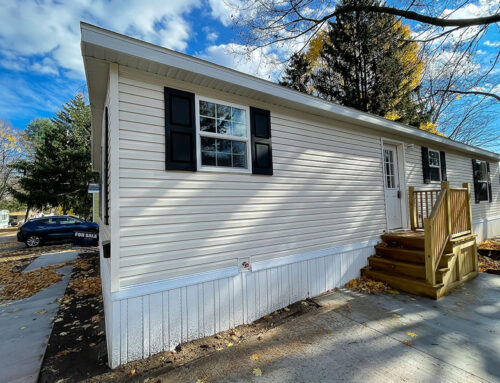As a native New Yorker and long-time real estate investor, I sometimes think the five boroughs of New York City get an excessive amount of attention as the best places to find great deals. Yes, investing in Brooklyn real estate and the up and coming Bronx neighborhoods of Morris Heights and Fieldston continue to hold a lot of promise for realizing good returns. Yet, there are areas outside the city limits where buying, renovating, and selling investment houses can also show good returns. Long Island–home to more than 60 vineyards, the Hamptons, and neighborhoods hit hard by the recession and Hurricane Sandy–is one such place. But how do you find great deals on investment property in Long Island?
Finding Deals on Long Island Investment Property
Home prices in Long Island have been rising steadily over the last several years as the New York City suburb recovers from both the housing crisis and Hurricane Sandy. This year, median closing prices on Long Island have gone up by 7.32% overall, with Nassau and Suffolk counties up by 6.4 and 9% respectively, according to the Multiple Listing Service of Long Island (MLSLI). Inventory has also declined during the same period, according to the same report, by just over 7%.
But even in the face of these numbers, many Long Island residents may still be underwater on their mortgages. Only a few short years after the housing crisis pummeled New York statewide, Hurricane Sandy hit its coastal communities harder in October of 2012. Superstorm Sandy, as it’s been coined, damaged or destroyed almost 100,000 homes and businesses in Long Island alone and displaced thousands of its residents, according to the National Hurricane Center. Not everyone received government assistance, and many didn’t have flood insurance.
So, despite a strengthening housing market overall, Long Island homeowners may still be facing financial pressures that could force them out of their homes. This potentially means more opportunities coming down the pipeline for investors to buy properties cheaply while helping distressed homeowners at the same time. Some of the ways to find these opportunities are detailed below.
Real Estate Databases. These days, finding fixer-upper homes for sale is as easy as going online and searching sites that specialize in aggregating data about properties on the market. Or, at least, it can seem that way. The most commonly used websites–Redfin, Zillow, and Realtor.com–pull information from the Multiple Listing Service of Long Island (MLSLI), among other sources, and publish the listings online for free. They also provide details such as past listing, sales, and tax histories, all of which can help you decide whether to buy a property or not. It’s not uncommon for homes for sale by owner to be included in some of these databases as well, increasing the scope of your search without adding much effort.
Except, however, as easy as using these sites may sound, it still takes a lot of time and effort to search through listings to find distressed properties priced below market value. And the information on these sites is still not always accurate. They don’t necessarily reflect the correct square footage, number of bedrooms and bathrooms, or true condition of a property. So, you’ll have to do more research. And, you’ll also have to compete with who-knows-how-many other investors, owner-occupiers, and their agents, who may also rely on these websites for finding cheap property. It’s just too easy to get stuck spinning your wheels without ever finding a deal.
In-Person. It’s still pretty common for real estate investors to reach out directly to homeowners, either in person or over the phone. You might choose to drive or walk neighborhoods looking for neglected and distressed properties, then contact the homeowner however you can with an offer to buy. Often referred to as “pounding the pavement” or “driving for dollars,” the idea is that in-person contact has a better chance of building immediate rapport with the homeowner and convincing them to sell.
But homeowners aren’t always living at a property, especially if it’s been severely damaged by Sandy, which means you’ll have to do some extra legwork to find them. Whether they do or not, this tactic is often seen as intrusive and could work against you in establishing rapport–particularly after the kind of destruction a natural disaster can cause. If financially distressed or displaced homeowners are further overwhelmed by investor interest, they may not be happy to see you.
Banks and Credit Unions. When a homeowner falls behind on mortgage payments, the property may be foreclosed on by the bank, credit union, or other lender. This can happen anywhere and for any number of reasons, like a divorce, prolonged illness, or job loss. Foreclosed homes are usually listed on the lender’s website and oftentimes on the MLSLI as well. In an effort to solicit the best offers from the most people, lenders frequently auction the properties to the highest bidder either on-site, at the courthouse, or online.
A word of caution about buying foreclosed homes, however. Even in areas like Long Island, the condition of these properties can be very poor and renovating them may be more trouble than it’s worth. If the mortgage wasn’t paid, it’s a good bet that repairs weren’t made either. In addition, if the property goes to auction, you may not get the chance to perform a home inspection, procure title insurance, review documents, or conduct any other aspect of due diligence. This could saddle you with unpaid back taxes, liens, and other surprise expenses once you close. And, buying a money pit, no matter where you buy it, can sabotage any hope of seeing a return on your investment. There are easier ways to find a great investment property.
The good news is that each of these methods work to some degree for finding decent deals in Long Island. But there is a way to locate better investment opportunities, no matter where you are. And, the great news is that it works by finding motivated sellers and bringing them to you.
Get Real About Investing in Long Island Real Estate
HomeVestors’® nationally-recognized “We Buy Ugly Houses®” ad campaign reaches homeowners in distress throughout New York through television, radio, and print. So, there’s never a question for homeowners about who to call when they need to sell quickly. Those leads, generated by the nationally-recognized “We Buy Ugly Houses®” marketing campaigns, are then rotated to local independently owned and operated HomeVestors® franchisees, like me, who can make a fair offer that improves the homeowner’s situation and leaves room for seeing potential returns. It’s a more realistic, and respectful, way of running a real estate investment business–one that I’m really proud to be a part of.
It’s time to get real about investing in real estate. Contact HomeVestors® today to discuss franchising opportunities that give you the opportunity to help others in Long Island and beyond.
Each franchise office is independently owned and operated.
Contact
"*" indicates required fields





